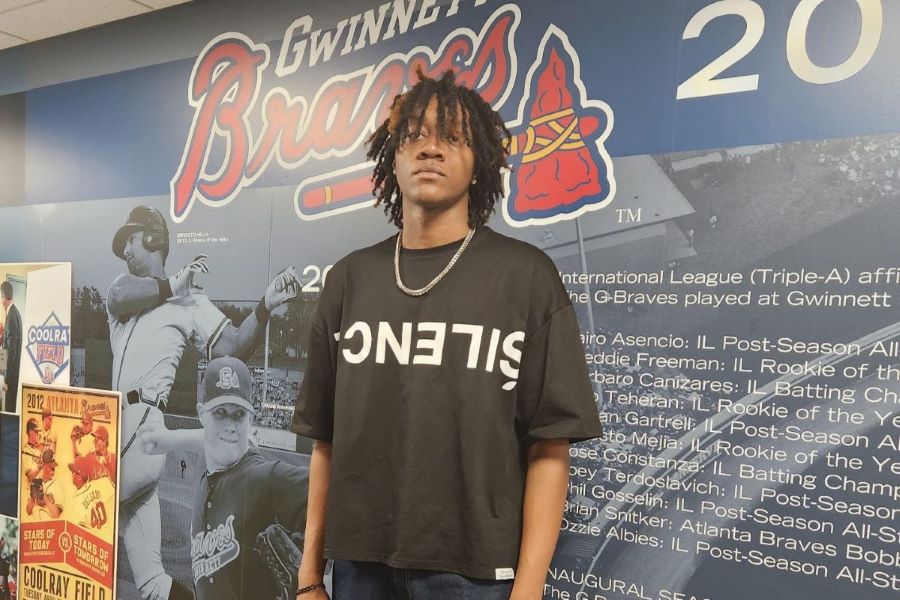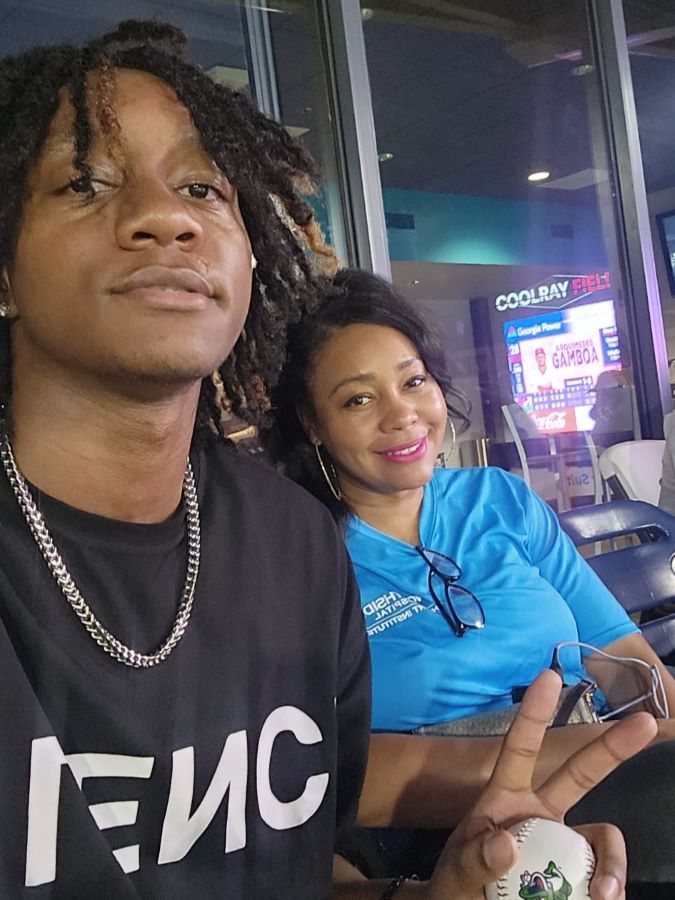
On April 15, 2023, Andrea Farley received a call she will never forget. Her seventeen-year-old son, Josiah, collapsed just minutes into an away basketball game in Lilburn.
Coaches, friends and bystanders ran to his aid, initiated CPR and used an automated external defibrillator, or AED, in an attempt to restart his heart, though he was still unresponsive and convulsing when the paramedics arrived.
 Josiah received several IVs, a drill-like mechanism in his shoulder that quickly delivered life-saving medications and other fluids and additional aid before his pulse was detected. It took more than 20 minutes for his heart to restart, which can cause serious brain damage, especially for a teenager.
Josiah received several IVs, a drill-like mechanism in his shoulder that quickly delivered life-saving medications and other fluids and additional aid before his pulse was detected. It took more than 20 minutes for his heart to restart, which can cause serious brain damage, especially for a teenager.
“I heard someone crying through the phone and another person say he was breathing,” Mrs. Farley said. “In that moment, I thought to myself, ‘of course he’s breathing! Why wouldn’t he be?’ I just couldn’t come to terms with what was happening.”
Josiah did not start breathing on his own until he arrived at Northside Hospital Gwinnett where upon further evaluation, the emergency physicians determined Josiah had experienced an episode of sudden cardiac arrest.
Upon waking, Josiah suffered from short-term memory loss, a common occurrence in those who have experienced a cardiac arrest or other heart-like event.
“I woke up in the hospital screaming and calling for my coaches and teammates,” Josiah said. “I was panicked and scared, and it took me a few minutes to be able to articulate anything.”
After three days, Josiah regained his ability to walk. During this time, the doctors conducted stress tests, genetic tests and MRIs on his heart and brain. Luckily, everything came back to normal.
Andrea recalls that everyone she encountered at Northside Gwinnett was incredibly accommodating to her and her son. She mentioned how thoughtful the staff were, and their transparency, advice and support while Josiah recovered from such a traumatic event.
“They took exceptional care of us from the moment we rushed through the doors,” Andrea said. “I’m incredibly thankful for the team of doctors and nurses that treated Josiah during our stay and for the positive outcome he had.”
After five days, Josiah was released from Northside Gwinnett.

Fortunately, for the Farley family, the swiftness of the gym bystanders saved Josiah’s life. Two of them were nurses, including a Northside cardiac nurse, whose training immediately kicked in. But not every student who experiences cardiac arrest is that lucky.
Instances of cardiac arrest, particularly in young adults and athletes, continue to grab headlines and earn national attention. In fact, the American Academy of Pediatrics estimates approximately 2,000 people under the age of 25 die from sudden cardiac arrest in the U.S. each year. It is the leading cause of death in young athletes in the U.S.
 In April 2024, Georgia lawmakers, backed by Northside Hospital physicians and partners, recognized the need for stronger cardiac care legislation and passed House Bill 874. As president of the Georgia Chapter of the American College of Cardiology, Dr. J. Jeffrey Marshall championed a mandate for AEDs in all K-12 schools statewide.
In April 2024, Georgia lawmakers, backed by Northside Hospital physicians and partners, recognized the need for stronger cardiac care legislation and passed House Bill 874. As president of the Georgia Chapter of the American College of Cardiology, Dr. J. Jeffrey Marshall championed a mandate for AEDs in all K-12 schools statewide.
This new bill, currently pending to take effect, declares all public schools in Georgia must provide defibrillators and an emergency action plan by July 2025 in case of a cardiac emergency.
Georgia joins 20 states with this requirement to ensure students like Josiah and all faculty are provided the proper tools and education to save lives – including proactive measures – like knowing how to administer CPR and use an AED.
Stories like this, and countless others, are reason enough for why all Georgia public schools need AEDs close to students, particularly when it comes to sporting events. Furthermore, by the 2025-2026 school year, all K-12 public schools are required to have an internal action plan and response team dedicated to cardiac arrest situations.
Each school must designate at least five staff members to be part of the response team, and all members are required to receive CPR and cardiac training through the Red Cross or the American Heart Association.
Along with a written emergency plan, schools must run a practice drill once per semester using hypothetical scenarios across campus, as well as staying in close contact with a local physician to ensure AEDs are up to code. In case of an episode, local physicians must also be on call and prepared for response when needed.
Signs someone is having a cardiac episode include sudden collapse, loss of consciousness, dizziness or lightheadedness, difficulty breathing, heart palpitations, vomiting, fatigue and chest pain.
"Knowing CPR is vital to saving lives, especially for the parents of teens not just in sports, but anytime there are kids involved, “said Andrea. “In a life-threatening situation, every second matters.”
Learn more about Northside Hospital Heart Institute.
*The health story shared here is for informational purposes only and is not medical advice. Patients should consult with their own physician before making medical decisions.
